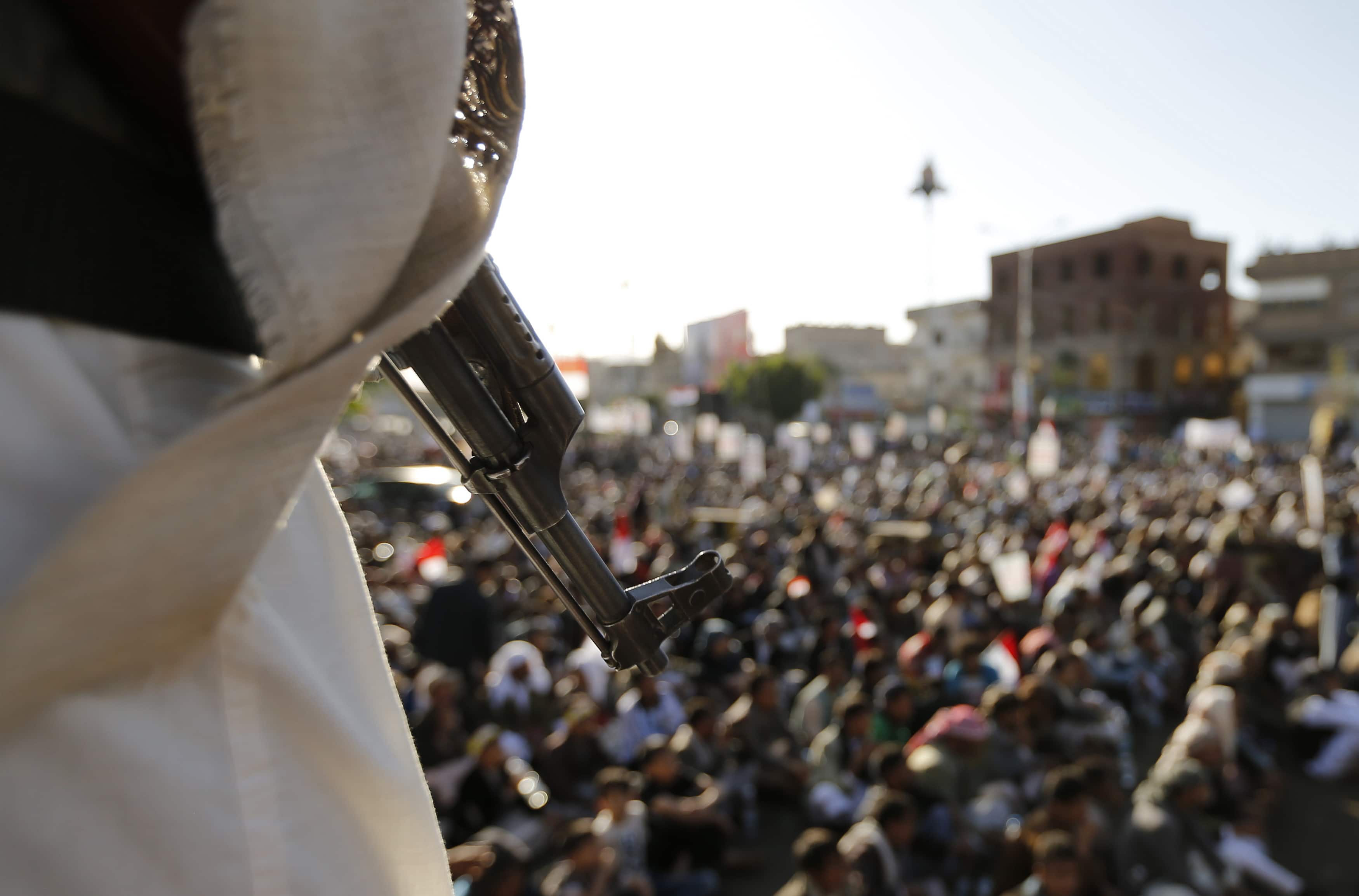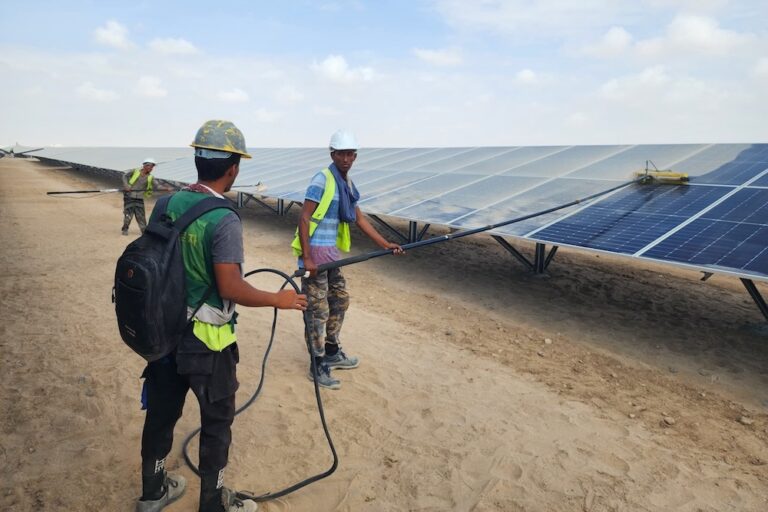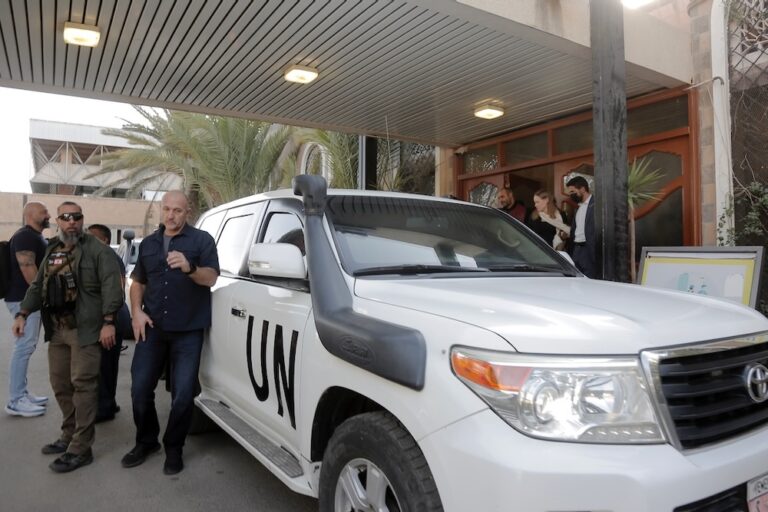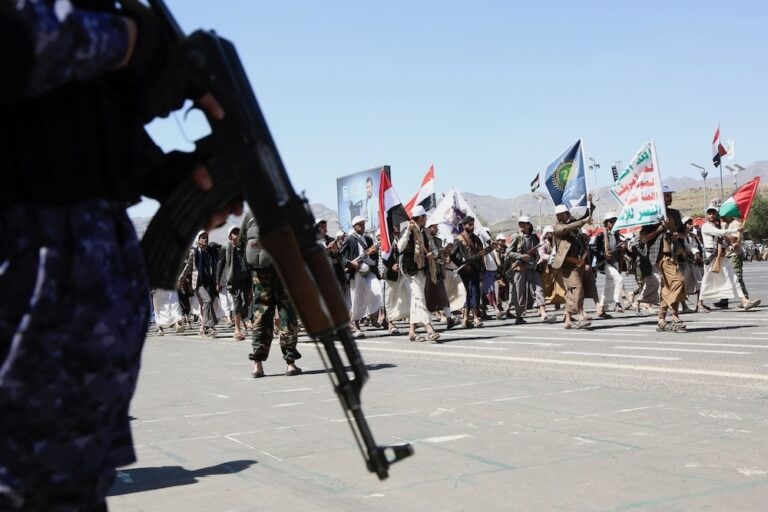A month after seizing the capital, Sanaa, Yemen’s Houthi rebels are continuing to advance on the centre and south of the country, occupying the headquarters of news media on the way and arresting or kidnapping journalists.
This article was originally published on rsf.org on 24 October 2014.
A month after seizing the capital, Sanaa, and despite having signed a peace accord under UN aegis, Yemen’s Houthi rebels are continuing to advance on the centre and south of the country, occupying the headquarters of news media on the way and arresting or kidnapping journalists.
In one recent instance, five gunmen claiming to be members of the Houthi movement stormed into the premises of Aleshteraki – an online newspaper affiliated to the Socialist Party and located near its headquarters – on 17 October, kidnapped one its editor, Badr Al-Qubaty, and held him for several hours.
Houthi leaders denied any role in this raid but Qubaty insisted that the rebels did indeed kidnap and threaten him. He added that it was hushed up as a result of an informal agreement between Socialist Party members and the rebel movement, which took the alleged culprits to the police and claimed they belonged to the rival Al-Ahmar clan.
Reporters Without Borders deplores the Houthi movement’s threats and acts of violence against the media, which increased in August and increased again when Houthi rebels arrived in the capital in September.
“We condemn these deliberate attacks on news media and journalists, which pose a real danger to freedom of information and to Yemen’s continuing political transition,” Reporters Without Borders deputy programme director Virginie Dangles said.
“We call on the authorities to carry out an investigation and punish those responsible. We also urge them to take whatever measures are necessary to provide journalists with as much protection as possible in the current unstable environment.”
Continuing their offensive, Houthi rebels seized control of state-owned Radio Ibb on 18 October after damaging its facade in an exchange of shots with Sunni tribesmen. As its generator was hit by gunfire, the station had to suspend broadcasting.
A BBC crew consisting of journalists Sami Noaman and Safaa Al-Ahmad and cameraman Mohamed Al-Mikhlafi was doing a report about one of the capital’s mosques when they were arrested by members of the Houthi movement and held for several hours.
According to the journalists’ union, the Houthi militants threatened Noaman and Ahmad on the pretext that they should have asked permission before filming in a public place. The rebels wanted to confiscate their camera even after the crew had deleted the newly recorded footage, and they did confiscate the memory card, although they returned it a few hours after releasing the journalists.
Reporters Without Borders is very worried by the spread of Houthis across Yemen, and the fact they have been able take advantage of political and security weakness to impose their will, threatening the country’s stability and freedom of information.
According to the Yemeni NGO Freedom Foundation, there were a total of 52 media freedom violations by Houthi rebels, targeting 33 journalists and 19 news media, in the month following the Houthi takeover of the capital on 21 September, all but one of them in the capital.
The Houthi advance on the centre and south has led to an increase in tension and clashes with their Sunni rivals of Al-Islah, a party affiliated to the Muslim Brotherhood and led by the Al-Ahmar clan, as well as with Sunni tribesman and Al-Qaeda in the Arabian Peninsula (AQAP).



